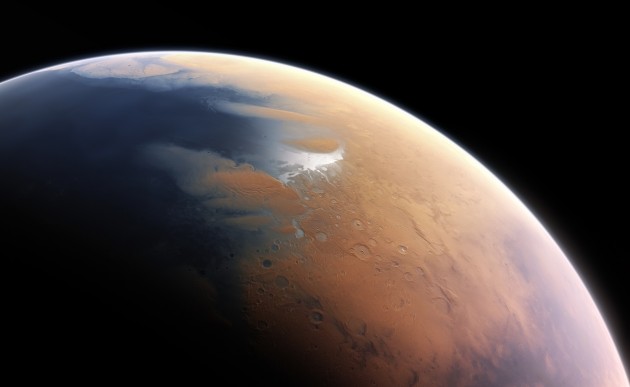
Artist’s impression of how Mars may have looked four billion years ago. Via Wikipedia.
Not only is there liquid water on Mars, but scientists believe it’s boiling, too. The finding comes on the heels of a discovery that unveiled strange streaks that seasonally appear and disappear on the Red Planet’s surface, giving scientists more insight into Mars’ atmospheric pressure.
Scientists came to this conclusion by simulating conditions on Mars in a recent study, the results of which were published in Nature Geoscience. In order to reach the conclusion, scientists created a “Mars Chamber,” in which conditions on the Martian surface were simulated. Ice was then put into the chamber and, once it melted, it began to flow—but that’s not the surprising part.
Researchers found that the surface of the water boiled as it flowed, creating streaks of dirt and debris not unlike those that were spotted on the Red Planet. Last year, NASA speculated that the streaks were formed by the water flowing down hill, and the recent findings published in Nature Geoscience back these claims up.
Here’s a portion of the thesis found in Nature Geoscience
In experiments at Martian surface pressure, we find that pure water boils as it percolates into the sediment, inducing grain saltation and leading to wholesale slope destabilization: a hybrid flow mechanism involving both wet and dry precesses. For metastable brines, which are more stable under Martian conditions than pure water, saltation intensity and geomorphological impact are reduced; however, we observed channel formation in some briny flow experiments that may be analogous to morphologies observed on Mars.
It’s unclear where the water came from in the first place, because it ebbs and flows depending on the season. Scientists believe the planet once had massive oceans, though the surface isn’t anything like it once was. However, there is a possibility there are ice reservoirs underneath the planet’s surface, which could be where this salty water is coming from.















